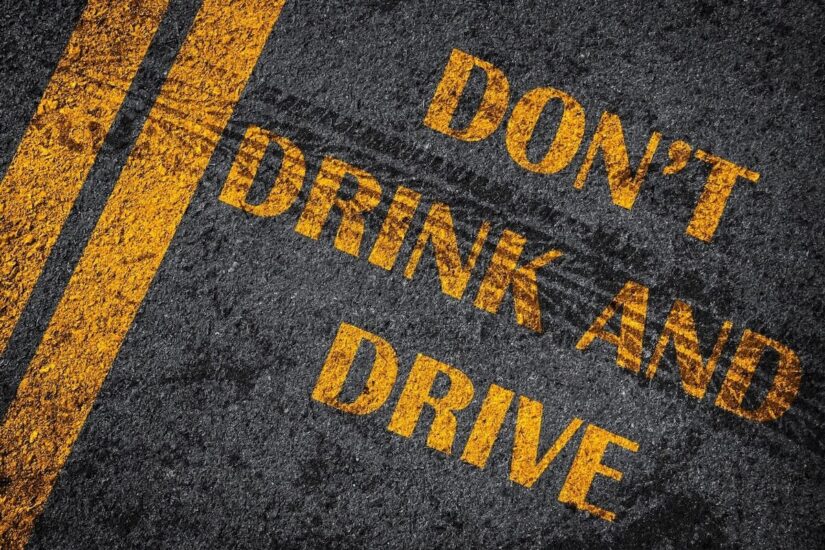
June 26, 2025
If you’re a first-time, non-violent DWI offender in Texas, the Texas DWI Second Chance Law (House Bill 3016) offers a way to seal your record and move forward. Here’s what you need to know:
Key Points:
- Who Qualifies? First-time offenders with a BAC under 0.15% and no accidents or injuries involved.
- What Does It Do? Seals your DWI record from public view, helping with job, housing, and loan applications.
- What It Doesn’t Do: Law enforcement, government agencies, and courts can still access your record.
- Steps to Apply: Meet eligibility criteria, complete court requirements, file a petition, and attend court if needed.
- Costs: Filing fees range from $250–$350, plus attorney fees if applicable.
Why Act Now?
A sealed record protects your future opportunities, but stricter DWI penalties introduced in 2025 make it even more crucial to take action if you qualify.
Bottom Line: The Second Chance Law gives you a fresh start while acknowledging past mistakes. If eligible, consult an attorney to guide you through the process.
Who Qualifies for the Texas DWI Second Chance Law
The Texas Second Chance Law is designed for first-time, non-violent DWI offenders who meet specific criteria. Let’s break down the key requirements and potential disqualifiers to help you figure out if you’re eligible.
Basic Requirements You Must Meet
To qualify for non-disclosure under House Bill 3016, you must meet these conditions:
- First-time offense only: This law applies exclusively to first-time offenders.
- BAC limit: Your blood alcohol concentration (BAC) at the time of arrest must be below 0.15% . A higher BAC is considered an aggravating factor that could disqualify you.
- No accidents: Your DWI offense must not involve an accident where another person was hurt.
Beyond these, you must complete all court-ordered requirements, such as alcohol education, community service, and fines. Keep detailed records of your compliance, as they’ll be required when you file your petition.
The law also includes a mandatory waiting period before applying. The length of this period depends on the specifics of your case, and during this time, you must maintain a clean criminal record to remain eligible.
Reasons You May Be Denied
Even if you meet the basic criteria, several factors can disqualify you:
- New criminal activity: Any criminal behavior, either before or after obtaining the non-disclosure order, will result in denial or reopening of your sealed record.
- Aggravating circumstances: Situations like having a child passenger under the age of 15 in the vehicle during your DWI or causing injuries to another person elevate the charge to a felony, which disqualifies you from the program.
- Commercial driver’s license (CDL): CDL holders face stricter rules under Texas law, and the standard eligibility requirements may not apply.
Judges also evaluate your behavior during the arrest and any prior criminal history. Even if you meet all technical requirements, a judge can deny your petition based on the overall circumstances of your case.
How to Get a Non-Disclosure Order
Getting a non-disclosure order for your DWI record involves several steps, each requiring careful attention to detail. The process typically includes verifying eligibility, preparing and filing the necessary paperwork, attending court, and meeting any final requirements.
Check Your Eligibility and Gather Documents
Start by confirming your eligibility under Section 411.074 of the Texas Government Code. This is an essential step, and consulting a Texas DWI attorney can help clarify your eligibility status. Tools like the Nondisclosure Order Prep Guide or the Fresh Start app can also assist in determining which type of nondisclosure order applies to your case.

To prepare your petition, gather key documents, such as the judgment in your case, court orders related to probation or deferred adjudication, and any signed orders confirming the completion or dismissal of your case. If your case was dismissed, you’ll need documentation showing the proceedings were discharged or the verdict was set aside.
Additional records might include your full criminal history, arrest records, final case disposition, and proof of completing probation or deferred adjudication. Certificates or documents proving you’ve completed court-ordered programs can also be helpful. Since document requirements vary depending on the specifics of your case, having an attorney review your paperwork is a smart move.
Once your documents are in order, you’re ready to file your petition.
File Your Petition and Attend Court
After confirming eligibility, file your petition with the clerk of the court where your original DWI case was handled. The petition must be filed in the same jurisdiction where you were sentenced. The court clerk will then forward copies of your petition to the judge and prosecutor, and the court will review your criminal record to ensure all eligibility conditions are met.
If a hearing is required, your attorney will help you prepare for it. You will also be required to pay court costs during this phase. These fees can vary depending on the complexity of your case.
Complete All Court Requirements
Once you’ve attended court, the final step is to fulfill any remaining requirements. This may include settling fines, completing community service, or meeting probation terms. After the judge signs your nondisclosure order, the process moves quickly: the court clerk must send the order to the Texas Department of Public Safety (DPS) within 15 business days, and DPS will seal the record within 10 business days.
What Happens When You Seal Your DWI Record
When your DWI record is sealed, it becomes inaccessible to the general public. This means it won’t show up on most public background checks. However, while such an arrangement provides notable advantages, it’s important to understand both the benefits and the limitations.
Benefits of the Second Chance Law
Texas’s Second Chance Law offers a way to seal your DWI record, providing a fresh start in many areas of life. One of the key benefits is improved job opportunities, as a sealed record remains hidden during standard background checks. This also means you won’t have to disclose your criminal history on applications for jobs, housing, or loans—situations where background checks are often required. The protection extends to housing, loan, and credit applications as well, offering much-needed relief.
However, it’s essential to know that sealing a record isn’t the same as erasing it entirely.

What the Law Cannot Do
While sealing your record offers privacy from the public, it doesn’t mean the record disappears. Law enforcement agencies and criminal justice entities, such as police departments, district attorneys, and courts, can still access your sealed record. Additionally, certain state agencies—including the State Board for Educator Certification, Board of Law Examiners, Department of Family and Protective Services, and Texas Board of Nursing—retain access to these records. Federal agencies also have full access to sealed criminal records.
If you’re under oath in court, you are still required to acknowledge the arrest, though you can specify that the case is sealed. Furthermore, if you commit another offense, your previously sealed record will automatically be unsealed. Courts can also issue an order to reopen sealed records at any time.
Knowing these boundaries is crucial. While sealing your DWI record provides relief and new opportunities, it doesn’t erase your history. Knowing where the protection applies allows you to take advantage of the benefits while staying informed about its limitations.
Texas Law Details You Should Know
Understanding Texas’s legal framework and the updates coming in 2025 is crucial for safeguarding your future. These updates highlight the importance of taking action under the Second Chance Law to seal your record.
Sealing vs. Expungement in Texas
In Texas, sealing and expungement serve different purposes. While sealing hides your record from public view, expungement completely erases it. However, it’s important to note that DWI convictions cannot be expunged under Texas law. Expungement is typically reserved for cases where charges were dropped, dismissed, or the defendant was acquitted, allowing individuals to legally deny any past arrest or prosecution entirely.
For many, the Second Chance Law’s non-disclosure option is the only way to limit public access to a DWI record. Even so, a sealed record has its limits. For instance, a sealed first-time DWI record can still be used to increase penalties for future offenses. This distinction makes sealing a critical option for those looking to minimize the long-term impact of a DWI conviction while recognizing its limitations.
2025 Changes to DWI Penalties
Texas’s 2025 legislative updates bring significant changes to DWI penalties, further emphasizing the importance of the Second Chance Law. First-time offenders with a BAC of 0.08 or higher will now face mandatory ignition interlock installation. For repeat offenders, the penalties grow tougher, with longer required device use, stricter monitoring, and broader court-ordered oversight.
Courts will also have the authority to require continuous alcohol monitoring, such as ankle monitors, even before trial. Repeat felony DWI offenders will face harsher sentences if a new offense occurs within ten years of a prior felony DWI, and habitual offenders could face mandatory minimum sentences. Additionally, probation periods and monitoring requirements have been extended, and the associated costs have increased.
While these updates don’t change the eligibility criteria for the Second Chance Law, they highlight the urgency of acting if you qualify. Sealing your first-time DWI record can be a critical step in limiting the long-term consequences of these stricter laws.
Wrapping Up
Texas’s Second Chance Law offers first-time DWI offenders a chance to move forward. This law acknowledges that a single mistake shouldn’t define your entire future, giving eligible individuals the option to seal their criminal records through a non-disclosure order.
To take advantage of this opportunity, it’s crucial to meet all eligibility criteria, including completing any court-ordered requirements and maintaining a clean record during the waiting period. While sealing your records can improve your job and housing prospects, it’s important to note that law enforcement and certain agencies will still have access to them.
Navigating this process can be tricky, and mistakes can be costly. Working with an attorney who understands Texas DWI laws and record-sealing procedures can significantly improve your chances.
The Napier Law Firm is here to help. They offer free consultations and are available 24/7 to discuss your options under the Texas DWI Second Chance Law. With their knowledge of Texas-specific DWI defense and record-sealing processes, they’ll guide you every step of the way. Take the first step toward a brighter future today.

FAQs
What steps and documents are needed to apply for a non-disclosure order under Texas’s DWI Second Chance Law?
To seek a non-disclosure order under Texas’s DWI Second Chance Law, you’ll need to file a petition with the court where your case was originally handled. This petition should include essential documents, such as:
- Proof of completing any required programs, like a DWI education course.
- Evidence showing a clean criminal record since the offense.
- Documentation confirming compliance with probation or other court-ordered conditions.
After you file, the court will review your petition and consider input from the prosecutor to decide whether you meet the eligibility requirements. If the court approves your request, a non-disclosure order will be issued, effectively sealing your DWI record and helping safeguard future opportunities. Make sure to check all specific requirements related to your case before submitting your petition.
How does sealing a DWI record under Texas’s Second Chance Law impact job applications or future legal issues?
Sealing a DWI record under Texas’s Second Chance Law limits public access, which means most private employers and landlords won’t be able to view it. This can greatly enhance your opportunities when seeking jobs or housing. However, it’s important to note that the record isn’t entirely erased—law enforcement, government agencies, and certain professional licensing boards can still access it.
If you’re charged with another crime in the future, a sealed DWI record can be reopened and might influence the outcome of your case. While sealing your record comes with significant advantages, it’s crucial to understand that it doesn’t completely remove the offense’s potential impact in all circumstances.
How will the 2025 changes to Texas DWI penalties affect record sealing, and should I apply now?
The 2025 updates to Texas DWI laws will make it easier for some individuals to clear their records. These changes include automatic expungement for certain dismissed charges and acquittals, along with shorter waiting periods for eligibility in specific cases. The goal is to streamline the process for those who qualify.
That said, the penalties for DWI offenses remain as tough as ever. If you’re eligible under the current rules, it’s a good idea to act now. By applying sooner rather than later, you can take advantage of the existing record-sealing process without worrying about potential shifts in future requirements. For personalized guidance, reaching out to a legal professional can help you better understand your options.